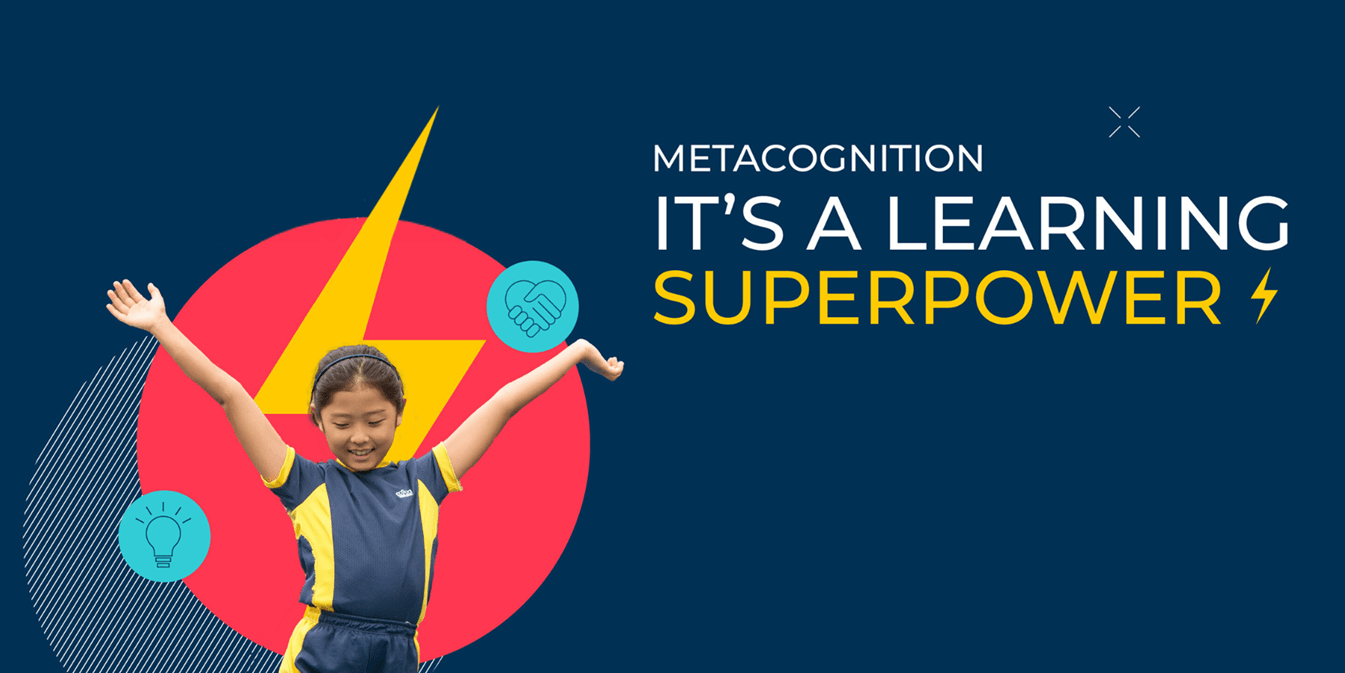We use cookies to improve your online experiences. To learn more and choose your cookies options, please refer to our cookie policy.


Metacognition is an important skill everyone can develop, when you know how.
It’s understanding how you learn best and using this knowledge to adapt your thinking style to thrive in different situations. Because everybody has a different way of learning.
At Nord Anglia Education, we’re helping our students develop their metacognitive skills.
This helps them to become confident learners and creative problem-solvers, so they’ll achieve more than they ever imagined possible no matter what they choose to do or be in life.
Metacognition. It’s a learning superpower.
We believe helping our students develop their metacognitive skills is key to unlocking their true potential.
It's why we’re partnering with world-leading research institutions like Boston College and Project Zero, a Research Centre at the Harvard Graduate School of Education.
Together, we're finding new ways to help our students become better thinkers, so they’ll succeed no matter what. By encouraging students to focus on how they think and reflect, their metacognitive skills help them to become confident, creative thinkers.
In fact, our global research with Boston College shows 85% of students think that by developing their metacognitive skills they're unlocking their strengths and learning potential.
Helping students tap into their metacognitive potential isn’t just about academic excellence.
Having great metacognitive skills means you’re able to understand yourself as a learner, adapt quickly in social situations, and build stronger social connections.
Our approach is supported by our research with Boston College, with over 70% of students saying metacognition boosts their social skills and helps them develop their independence too.
Our research also shows 72% of our students said their knowledge of how they learn has improved.
Why? Because metacognition gives them the tools to tackle challenges head-on, from studying and taking exams, to navigatingsocial situations and life, in general.
Developing their metacognitive skills helps them to reflect, adapt, and make better decisions, whether they’re solving a problem in mathematics, or building friendships.
Our pioneering metacognition research is just one of the many ways we’re helping students unlock their potential, through evidence-based teaching and learning.
By learning to understand how they think, and why, our students will have the confidence, resilience, and creativity to thrive in our ever-changing world
Dr Damian Bebell, Assistant Research Professor at Boston College, said: “Our global research partnership with Nord Anglia Education is one of the first large-scale studies of metacognition and skills development. It’s very encouraging to see the first year’s results, which will help us to further shape teaching practices and learning outcomes.”
Metacognition. It’s a learning superpower.
/2/1.gif?h=1080&iar=0&w=1080&rev=e6f97d17b95641c3882514259e045cef&hash=15C26CFC07158CD2BD251372DBBB0539)
/2/2/2.gif?h=1080&iar=0&w=1080&rev=d8fd13bd3af3472b951697273c98693a&hash=4C2FD9492B42903BC124DC0D92263E92)
/2/3.gif?h=1080&iar=0&w=1080&rev=10e4e8bb119e4dab9fffe0aa9f247684&hash=21924ABD62F4F9B4B2C4FA6705CCF229)
/2/2/4.gif?h=1080&iar=0&w=1080&rev=35f6d970512341e0ba0875b0d33e265f&hash=5B11D44501177398356E8ADAF89B7CAC)
/2/2/5.gif?h=1080&iar=0&w=1080&rev=44f3ad9bd56d44a6b8aaafcf9a6e8fa4&hash=A23CC2D860876739F157433BE4CF3DA8)
 Blog
Blog